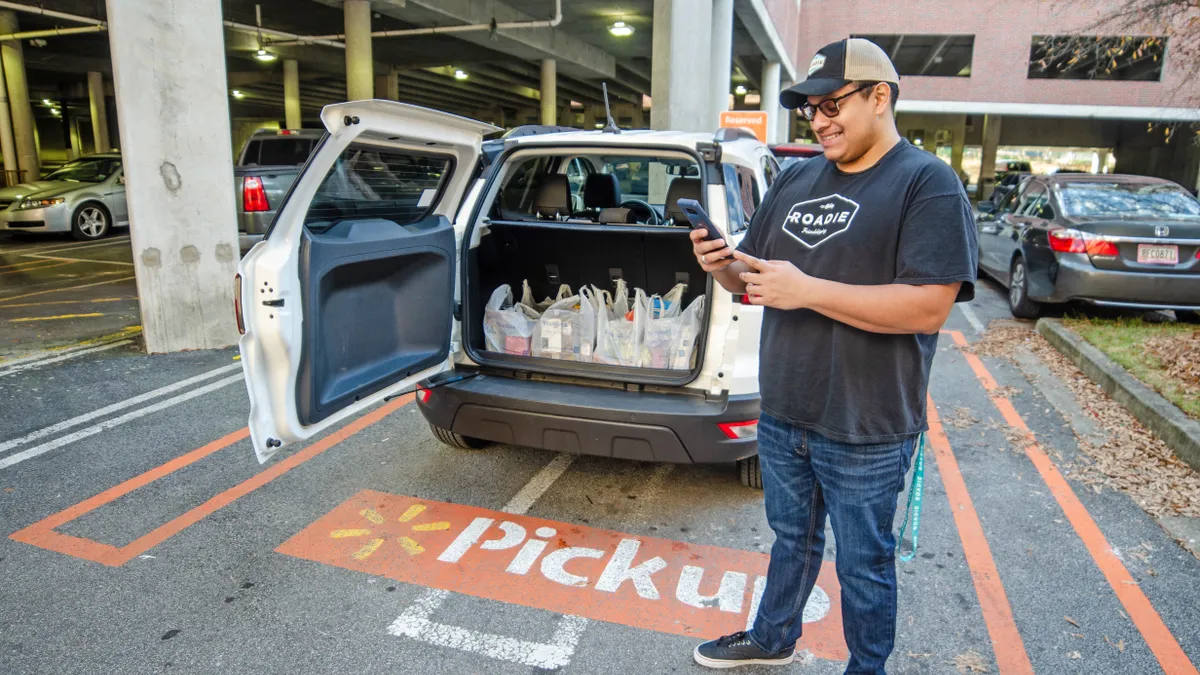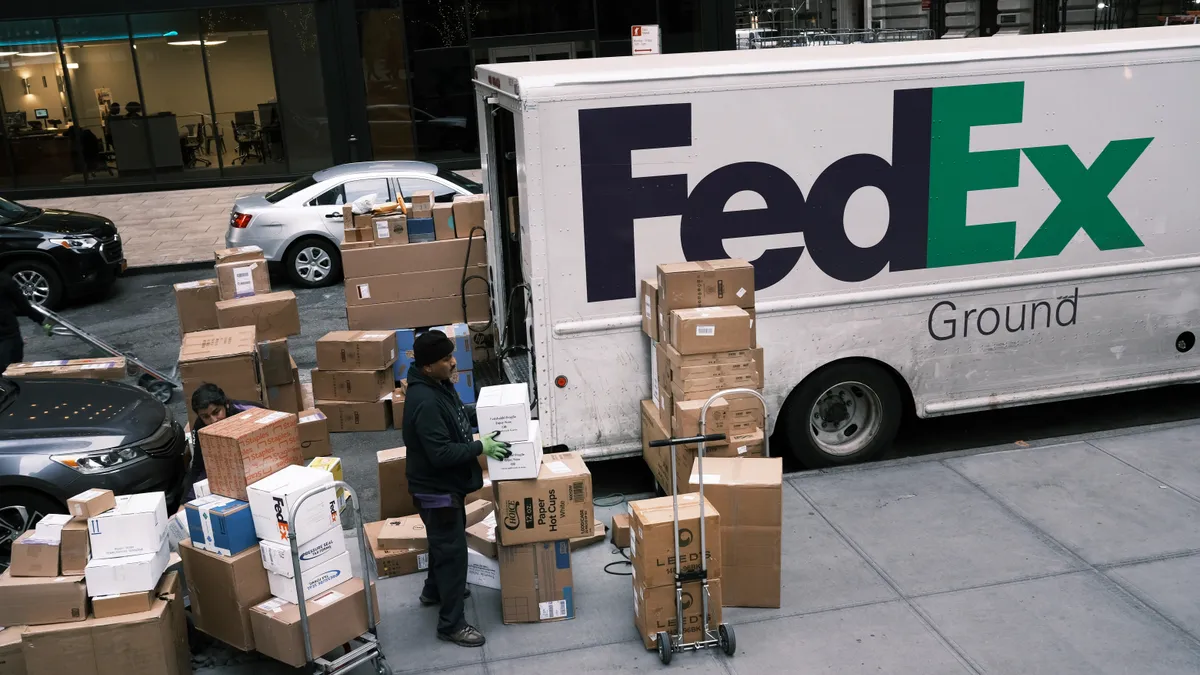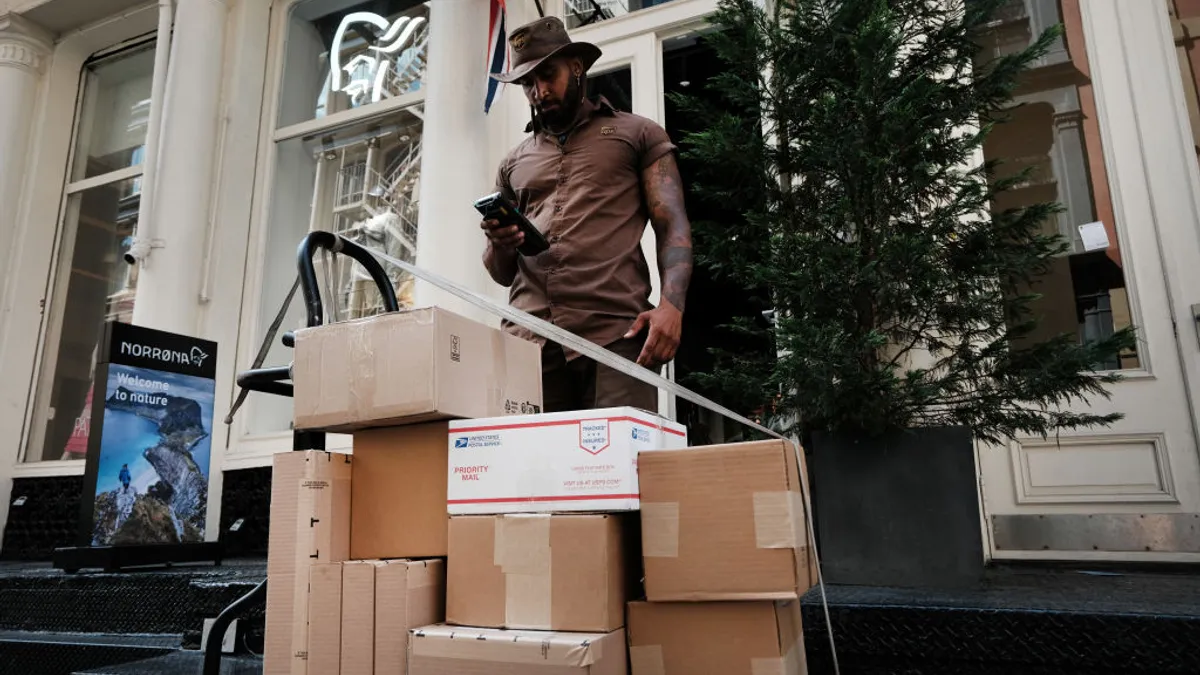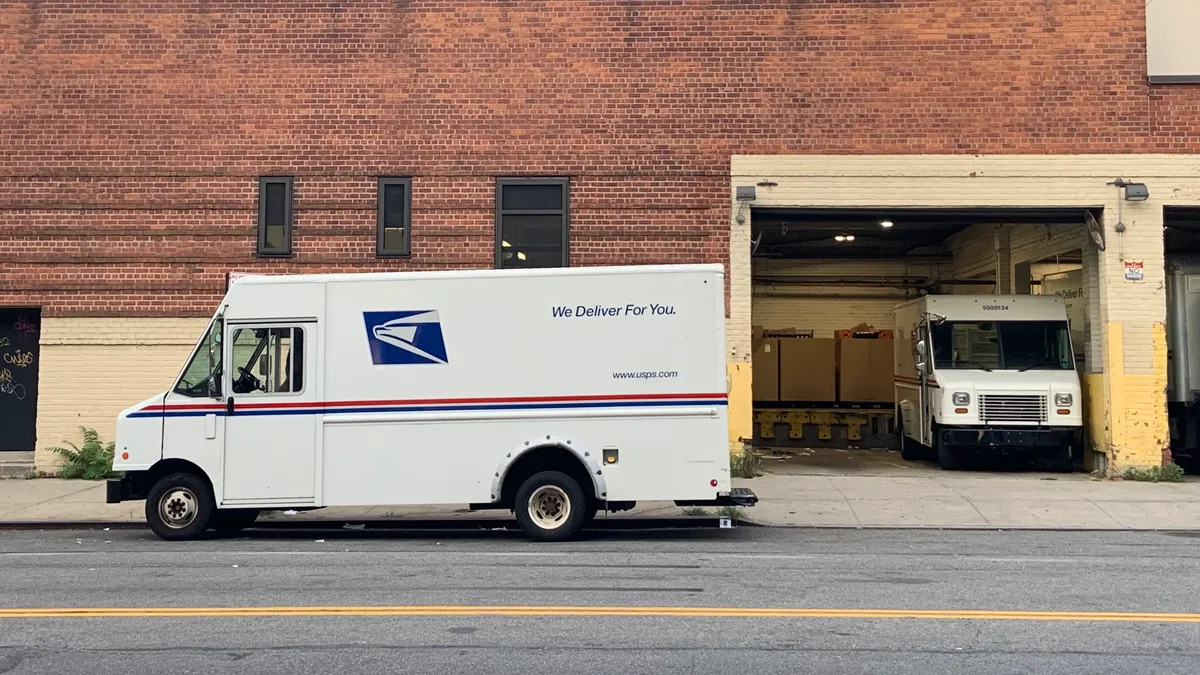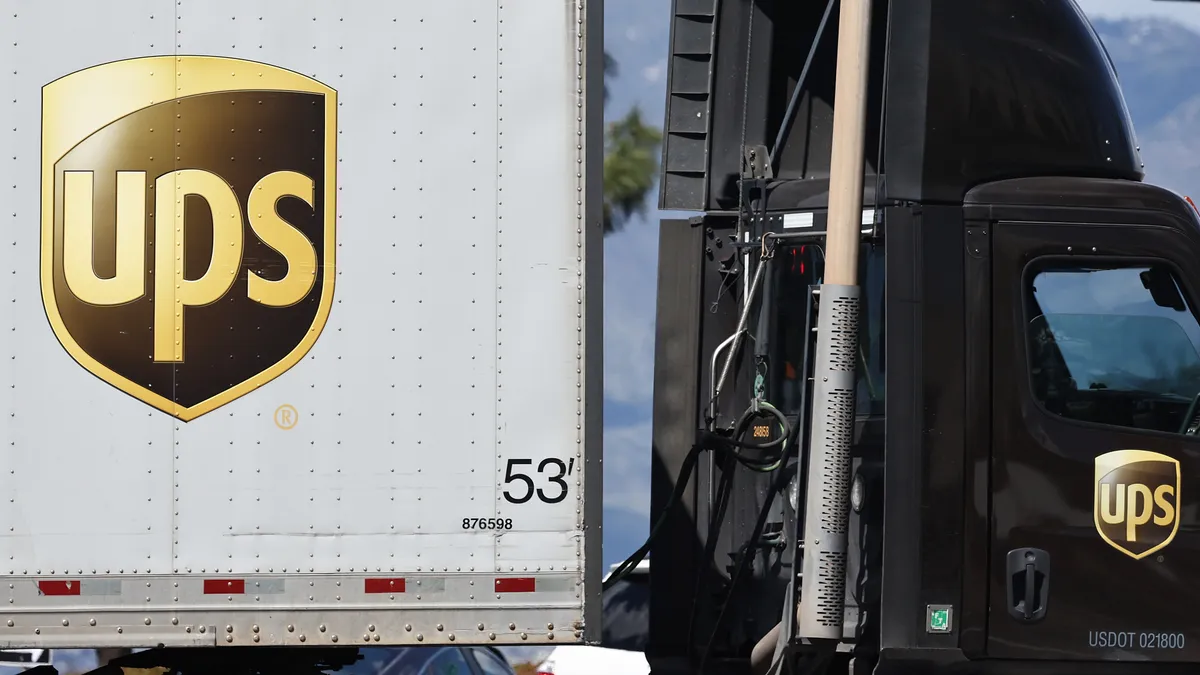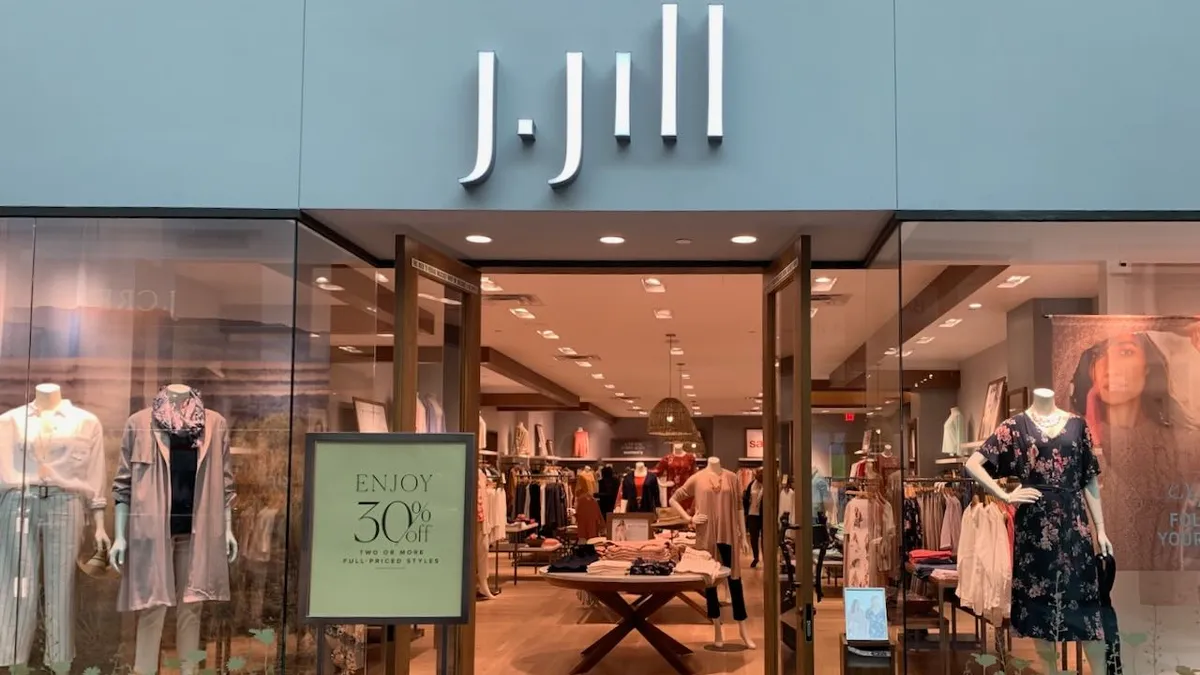As plans to reopen state economies materialize after weeks of "stay-at-home" orders to slow the spread of the coronavirus, a snap back to pre-COVID-19 operations is not in the cards. And retail supply chain operations will play a major role in determining who sinks and who swims.
The federal government issued guidelines for reopening in three phases Thursday, putting the onus on states to hand down the orders, and one day later Texas Gov. Greg Abbott announced non-essential retailers will be permitted to reopen Friday, April 24 — though without allowing customers to enter stores. "Retail to go" was Abbott’s description.
"Retail to go" is an existing retail operational strategy commonly referred to as buy-online pickup in-store (BOPIS). In the grocery world it’s more commonly referred to as "click-and-collect", "drive-up" or "pickup." In the time of COVID-19, omnichannel operations have gained new importance since essential retailers are looking to maximize personal space within stores and make productive the inventory trapped inside closed stores.
Beginning at midnight Friday, "retail services that are not ‘essential services,’ but that may be provided through pickup, delivery by mail, or delivery to the customer’s doorstep in strict compliance with the terms required by [Department of State Health Services]" may reopen, according to a press release from Abbott's office. The guidelines stipulate the preferable method of delivery is for the retailer to put the items in the back seat or trunk of the customer’s car to minimize contact.
Retailers dial up the intensity on BOPIS
BOPIS is a bedrock of omnichannel retail operations, which seek to join the inventory in a retailers' warehouse network and stores and serve the customer in whatever way they prefer to be served. As states with existing restrictions begin to allow non-essential retailers to operate again, omnichannel strategies will be just as important to keeping these retailers in business.

BOPIS has been a mainstay of larger retailers for several years since customers have responded well to the convenience and the scheme has brought up margins for e-commerce operations. As of March 2019, 44% of a survey of 69 retailers have implemented BOPIS and an additional 30% had plans to do so according to Forrester.
Grocers and other retailers deemed "essential" all over the country have been getting very familiar with BOPIS with some converting to dark stores to keep workers safe and more efficiently fulfill online orders — essentially what Texas is mandating for nonessential retailers.
Those with programs already in place are dialing up the intensity according to Marc Gorlin, CEO of Roadie, a crowd-sourced delivery provider. Gorlin told Supply Chain Dive retailers with existing omnichannel services are expanding coverage areas to keep sales flowing amid coronavirus-related restrictions on brick and mortar retail operations.
Challenges ahead for omni-newbies
Though omnichannel operations have been at the forefront of retail innovation for more than a decade, it is still a challenge for many retailers. Forrester analyst Sucharita Kodali described omnichannel programs in the report as "still a work in progress," with inventory accuracy and forecasting demand as top challenges.
Inventory visibility and management are key to successful omnichannel operations because, by definition orders are fulfilled through multiple channels, meaning aggregate inventory can get lost in the shuffle if systems are not in place to track inventory levels and locations.
"The most important investment for any omnichannel program is to ensure that shoppers, store associates, and suppliers know which products are where in every store," wrote Kodali.
More than half (56%) of the retailers surveyed by Forrester said inventory accuracy was a problem in their operation and 65% said inventory planning to incorporate demand across channels was also a challenge.
"Light up one store or a couple of stores in the market and figure out what’s working and what's not — figure out what SKUs should be delivered or not."

Marc Gorlin
CEO, Roadie
To overcome these challenges, retailers planned to invest in order management systems and staff training, among other strategies.
Jumping in without a clear understanding of the nuts and bolts of omnichannel is not advisable, but Gorlin said he sees plenty of "analysis paralysis" around omnichannel implementations too. It's the retailers that dithered before the coronavirus changed the nature of retail that are now banging down Roadie's door for same-day delivery.
"Folks that had plans and just hadn’t gotten to them yet, folks that were going through endless hand-wringing and RFPs to find the perfect vendor — there isn’t one," said Gorlin. His advice is to jump in fast but start small.
"One way that smaller companies can easily start is to do a small test. Light up one store or a couple of stores in the market and figure out what’s working and what's not — figure out what SKUs should be delivered or not," he said.
Not all states are giving the same directive as Texas. Tennessee, Georgia and South Carolina announced their reopening schemes this week and allow regular retail operations as long as proper sanitation and social distancing are in place. But even in states where omnichannel isn't required by policy, foot traffic is unlikely to return quickly.
Roughly one quarter of consumers said they wouldn't feel comfortable shopping in a mall for more than six months, 16% said they would feel comfortable in the next three months and only 4% said they would in the next month, according to a Morning Consult survey taken in early April. Omnichannel's "essential" status is unlikely to fade any time soon.
This story was first published in our weekly newsletter, Supply Chain Dive: Operations. Sign up here.



